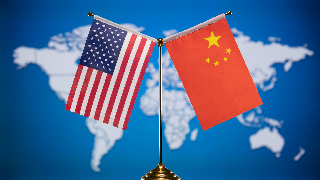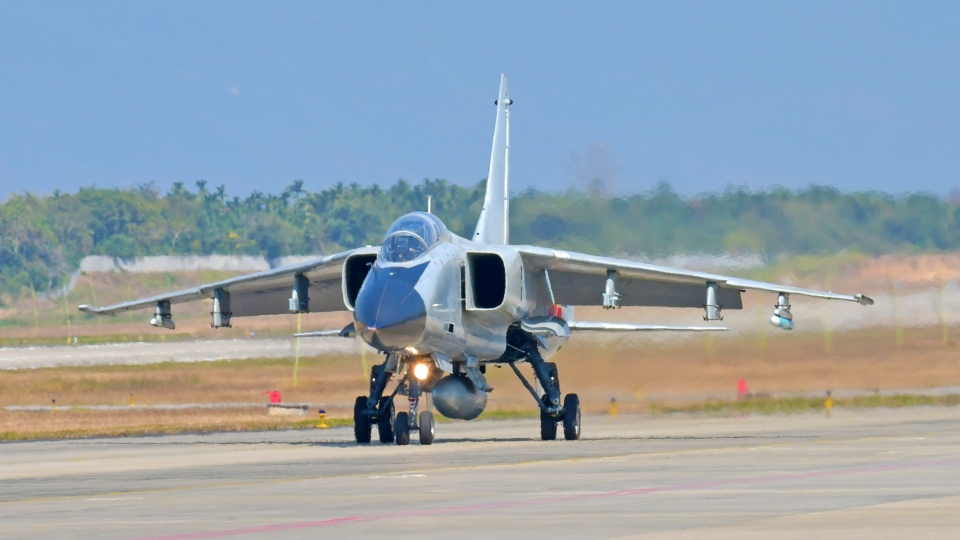By Sun Wenzhu
According to reports, US government officials recently revealed that the country is currently negotiating with the UK and Australia, looking forward to extending an invitation to Japan for security technology cooperation under the AUKUS framework. Australian Deputy Prime Minister and Defence Minister Richard Marles had previously expressed his expectation for Japan's participation in developing artificial intelligence, hypersonic and other technologies under the framework, and joint exploration of their applications in the military field.
The expansion of the AUKUS targets building a military security bloc covering the Indian Ocean and the Pacific Ocean regions. In fact, as early as the establishment of the framework, the US, the UK and Australia had separately sought Japan's inclination to be part of the alliance in private settings.
Japan's ambivalent attitude towards the AUKUS is quite intriguing. On the one hand, the Japanese government stated that it has never received an official invitation to the AUKUS, emphasizing its commitment to non-nuclear status and distancing from the AUKUS nuclear submarine program. On the other hand, the domestic right-wingers represented by former Prime Minister Taro Aso have repeatedly requested to incorporate Japan into the AUKUS for joint containment toward China.
In 2023, Tokyo officially ratified the conclusion of the Reciprocal Access Agreements with the UK and Australia, hence establishing a quasi-alliance relationship only inferior to the US-Japan alliance with these two countries. Japanese officials also indicated to provide logistical support in line with the US precedents for Australian nuclear submarines docking in Japan when required in the future. It can be said that whether Japan joins the AUKUS framework is only a matter of name.
Japan's increasing proximity to the AUKUS is the result of their mutual strategic needs under the new situation. Such a move carries with distinct undertones of a "new Cold War", posing greater risks of instability and disintegration to the Asia-Pacific region. This warrants the vigilance and precaution of the international community.
Japan's tendency towards the AUKUS caters to its fundamental adjustment of its national security strategies and defense policies, to break the limit of the pacifist constitution "exclusively defense-oriented" principle and ascend into a true military power that excels in offense and defense, which will entail great uncertainty to regional security.
In December 2023, Tokyo adopted the revised three security documents saying to fundamentally strengthen the defense capability of the country, in a bid to not only build preemptive offensive military capabilities but also reinforce ties with the US allies horizontally while solidifying its alliance with the US, thereby further elevating its influence.
The reciprocal proximity between the AUKUS and Japan also stems from the considerations of sharing research and development costs and converting key technologies into military capabilities more effectively. Due to the high costs, long cycles and high risks of military science, technology and innovations, and the capability restraints in the armaments market of a single country, it is difficult to form a positive cycle of "profit accumulation - research and development". Japan has seen successive substantial growth in defense expenditure and vigorous promotion of the plan to double its defense budget. The potential benefits of expansion are evident for the AUKUS, and Japan can also reap gains from the collaboration. The expansion pursuit of the AUKUS exposes the consistent tactic of the US to promote its so-called "Indo-Pacific Strategy" and maintain its hegemony by relying on the small cliques formed by its allies.
In recent years, leaning on the AUKUS, the QUAD organization, the Five Eyes Alliance and other small-multilateral mechanisms in the "Indo-Pacific" region, the US has perceived its allies and partners as "amplifiers of power", achieving overall alignment through flexible collaboration in various domains, thus offsetting the deficiencies resulting from its relative decline in strength. Originated from a nuclear submarine procurement project from Australia, the AUKUS has recently met resistance due to the defense underfunding and domestic opposition in the country, the US, the UK and Australia thus have sought to break through externally, hoping to draw Japan, the ROK, New Zealand and even Canada and India in to magnify their presence. This approach, which clearly exhibits a bloc tendency and zero-sum game mindset, will further exacerbate geopolitical confrontation and undermine regional peace and stability.
(The author is from China Institute of International Studies)









